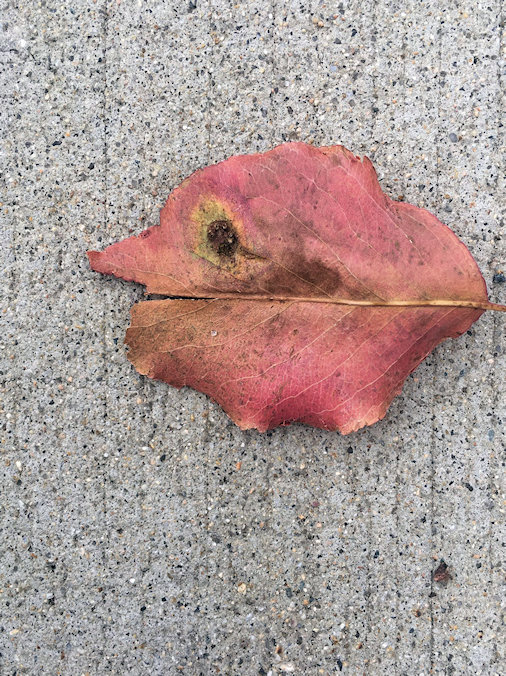Outside there is a pandemic and I am in lockdown in Montevideo, Uruguay, far from my daughter and son also locked down, but in Kanazawa, in Ishikawa Prefecture, Japan, and I am inside drawing, drawing, drawing, filling sheets of paper, pages drifting to the floor, as if I were the boy in the Japanese fable who also draws and draws and draws but only cats. Cats, cats, cats until his farmer father gives up and sends him to a monastery where the boy draws the monastery cats until the head priest too gives up and tells him to go home. As he leaves, the old priest warns the boy, saying: “Avoid large places at night. Keep to the small.”
I am keeping to the small, tucked inside my rented apartment, inside my body, the very idea of outside frightening to me now—and the boy too is afraid, but of returning to his father, so instead he travels to another temple in the hopes he can ask the priests to stay there, not realizing they have all fled a giant goblin-rat. The boy arrives, and finding the place deserted, begins to draw cats all across the walls.
How long before I am drawing cats? Right now I am practicing persimmons, modeled on Muqi’s famous painting “Six Persimmons” said by Buddhist monks to be the only painting with no screen of thought between the viewer and the object. Perfect for meditation. But now the round persimmons keep shifting under hand, turning into round cat faces, lacking only whiskers.
Meanwhile in the fable, night falls and the boy, remembering the old priest’s warning, climbs inside a little cabinet before he goes to sleep, but he wakes to the sound of fighting, of horrible rat screams. When morning comes and he climbs out, he discovers the corpse of the goblin-rat as big as two dead cows. As he wonders what could have killed it, he sees the claws and tongues of the cats he drew on the walls are now wet and red with blood.
Horrific.
But the fable has a happy ending. The boy is hailed as hero and grows up to be a famous artist—who draws only cats.
Me, I move on from persimmons, start working on my linear perspective so in this moment when people all around the world are dying, when there might not be a far off future, I can fool myself into thinking two converging lines are a path to a Japan and my children—or even a road to a further, more distant land where everything is fine.
___
Jesse Lee Kercheval is a poet, writer, and translator, specializing in Uruguayan poetry. Her memoir, Space, was the winner of the Alex Award from the American Library Association. Her recent essays have appeared in Guernica, The Sewanee Review, Entropy, On the Seawall and Blackbird.


13 comments
Jan Priddy says:
Jan 18, 2021
I have always loved the fable about the painter of cats. Yours is a koan. You speak the language but too few to speak to?
Tom Ewart says:
Jan 18, 2021
The entire world itself now is too large a space, and we would all do well to stay in small spaces. An interesting idea, especially in a pandemic. Perhaps we need more animated cats to dispel the rabid rats…
Gavin Van Horn says:
Jan 20, 2021
Thank you, Jesse, for reminding me that we can draw our way into trouble and draw our way out of it.
Rae Longest says:
Jan 22, 2021
II enjoyed reading these thoughts so much. Thanks for sharing.
Maery Rose says:
Jan 24, 2021
Well done, Jesse! As I read your piece, I thought, maybe this isolation has driven me to learn to draw portraits. In seeing so few real faces, I am now drawing people and calling them friends.
Tyler Mills says:
Feb 2, 2021
This is my first time posting here! Hello, everyone! I wanted to write to say that I am teaching this beautiful essay tonight in my memoir workshop. Thank you for your words, Jesse!
Beth Ann Fennelly says:
Mar 16, 2021
Jesse Lee, this was so beautiful. Thank you!
Blair Kilpatrick says:
Mar 26, 2021
Oh my, the circuitous path that brought me here. A memoir course, a hint to check out Brevity, a link to a sample piece. And I discover this stunning essay written by my Facebook friend Jesse Lee. Thank you! So much beauty to discover in these harsh times.
MJ Malleck says:
Mar 29, 2021
Beautiful I have tried to buy a printed copy of this fable with lovely artwork, that is out of print. Thank you for the connection to the isolation of the pandemic and the importance of art.
Shannon Savvas says:
May 8, 2021
This led me down a rabbit hole looking for the 6 Persimmons, listening to a lecture and with the bonus of being beguiled by your piece. Thank you.
Anne Murphy says:
Nov 10, 2021
Like Blair Kilpatrick, I too was led to Brevity through the recommendation of my memoir class tutor and what a treat to then read Jesse Lee’s piece! Many thanks!
Isabella says:
May 29, 2023
I can totally relate to your feelings of being alone and missing loved ones during these difficult times. Drawing has become my sanctuary too, providing comfort and escape. The fable you shared reminds us of the transformative power of art, how it can bring joy and meaning to our lives. Let’s hold on to the hope that our creative pursuits will guide us towards a brighter future, where we can once again embrace our dear ones. Keep drawing and dreaming!
Sean Lovelace says:
Jan 18, 2025
Pretty damn good.